
Lublin Upland: Poland's Hidden Gem of Nature and History
The Lublin Upland, located in southeastern Poland, is a captivating blend of natural beauty, rich history, and vibrant culture. This region is characterized by its rolling hills, picturesque landscapes, and charming villages that seem to be untouched by time. As you explore the Upland, you'll find yourself surrounded by lush forests, serene rivers, and stunning limestone gorges, making it a perfect destination for nature lovers and outdoor enthusiasts. One of the most remarkable features of the Lublin Upland is its historical significance. The area is dotted with ancient castles, historic churches, and medieval towns that offer a glimpse into Poland's storied past. The town of Zamość, a UNESCO World Heritage Site, is a must-visit with its beautifully preserved Renaissance architecture and vibrant market square. Similarly, the Majdanek concentration camp serves as a poignant reminder of the region's more recent history. Cultural experiences abound in the Lublin Upland as well. The city of Lublin, the region's cultural heart, hosts numerous festivals, theaters, and museums that celebrate Polish traditions and contemporary arts. The local cuisine, featuring hearty dishes like pierogi and żurek, adds to the area's charm. Whether you're hiking through scenic trails, exploring historical sites, or immersing yourself in local culture, the Lublin Upland promises a unique and unforgettable travel experience.
Local tips in Lublin Upland
- Visit in late spring or early autumn to enjoy mild weather and fewer tourists.
- Wear comfortable walking shoes as many attractions are best explored on foot.
- Try local delicacies like pierogi and żurek at traditional Polish restaurants.
- Consider renting a car to easily explore the Upland's rural and scenic areas.
- Learn a few basic Polish phrases; locals appreciate the effort and it can enhance your experience.
Lublin Upland: Poland's Hidden Gem of Nature and History
The Lublin Upland, located in southeastern Poland, is a captivating blend of natural beauty, rich history, and vibrant culture. This region is characterized by its rolling hills, picturesque landscapes, and charming villages that seem to be untouched by time. As you explore the Upland, you'll find yourself surrounded by lush forests, serene rivers, and stunning limestone gorges, making it a perfect destination for nature lovers and outdoor enthusiasts. One of the most remarkable features of the Lublin Upland is its historical significance. The area is dotted with ancient castles, historic churches, and medieval towns that offer a glimpse into Poland's storied past. The town of Zamość, a UNESCO World Heritage Site, is a must-visit with its beautifully preserved Renaissance architecture and vibrant market square. Similarly, the Majdanek concentration camp serves as a poignant reminder of the region's more recent history. Cultural experiences abound in the Lublin Upland as well. The city of Lublin, the region's cultural heart, hosts numerous festivals, theaters, and museums that celebrate Polish traditions and contemporary arts. The local cuisine, featuring hearty dishes like pierogi and żurek, adds to the area's charm. Whether you're hiking through scenic trails, exploring historical sites, or immersing yourself in local culture, the Lublin Upland promises a unique and unforgettable travel experience.
When is the best time to go to Lublin Upland?
Iconic landmarks you can’t miss
Lithuanian Square
Explore Lithuanian Square in Lublin, where history, culture, and vibrant local life converge in a stunning monument.
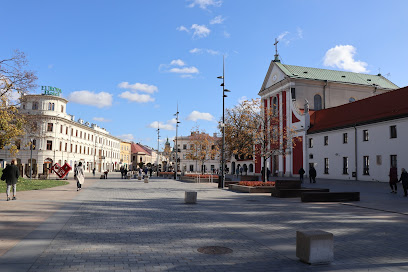
Multimedia Fountain
Experience the magic of the Multimedia Fountain in Lublin, where dazzling water displays meet vibrant light shows in a picturesque setting.
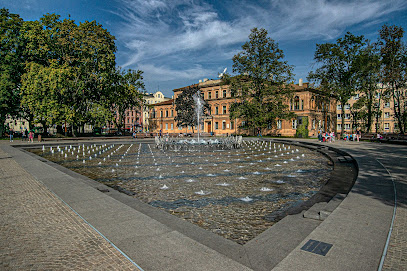
Saxon Garden
Explore the lush landscapes and tranquil beauty of Saxon Garden, a serene state park and essential Lublin attraction for nature lovers and families.
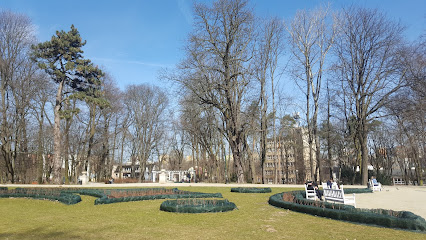
Cracow Gate
Explore the historic Cracow Gate in Lublin, a stunning landmark that reveals the rich history and culture of Poland through its captivating museum.
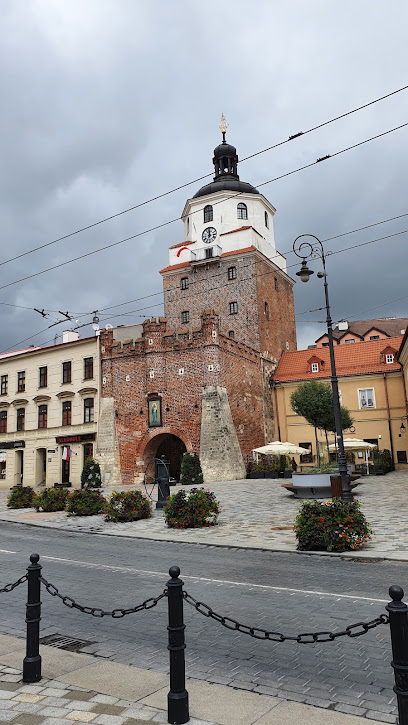
Św. Michał - pub regionalny
Experience the essence of Lublin at Św. Michał, a brewpub serving local craft beers and traditional Polish cuisine in a cozy atmosphere.
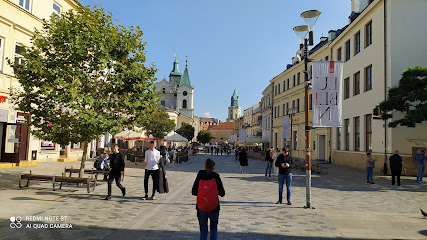
Rezerwat przyrody Nad Tanwią
Experience the serene landscapes and rich biodiversity of Rezerwat Przyrody Nad Tanwią, a captivating nature preserve in Poland.
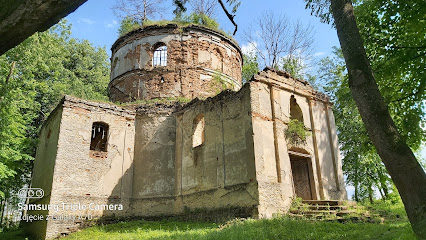
Stół i Wół
Experience the culinary delights of Stół i Wół in Lublin, where gourmet steaks and burgers meet a vibrant atmosphere.
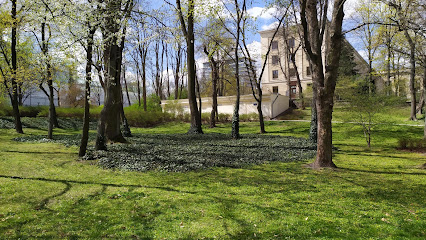
Państwowe Muzeum na Majdanku
Discover the poignant history at Państwowe Muzeum na Majdanku, a national museum dedicated to Holocaust remembrance and education.
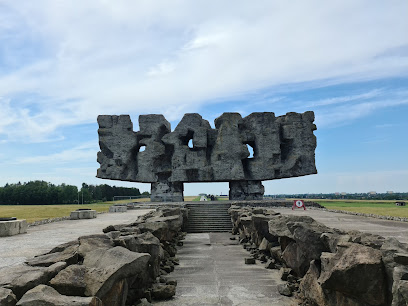
Koper Włoski u Braci Mazur
Discover the exquisite flavors of Italian cuisine at Koper Włoski in Lublin, where every dish tells a story of culinary artistry and local charm.
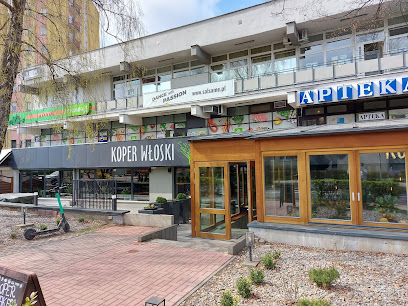
Roztocze National Park
Explore the breathtaking landscapes and rich biodiversity of Roztocze National Park, a true gem for nature lovers in Poland.
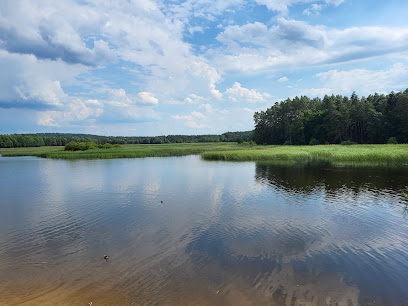
Mandragora żydowska restauracja
Experience the essence of Jewish cuisine at Mandragora, a cultural and culinary landmark in Lublin, Poland.
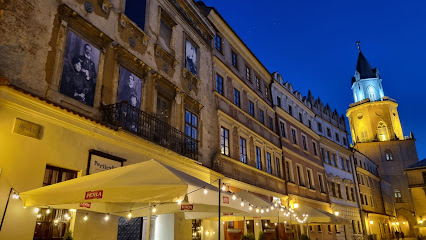
Sielsko Anielsko
Experience authentic Polish cuisine at Sielsko Anielsko in Lublin, where every dish tells a story of tradition and flavor.
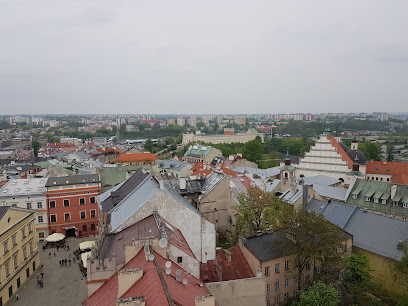
ParZona
Experience the delightful flavors of Lublin at ParZona, where exquisite pastries and aromatic coffee await in a cozy atmosphere.
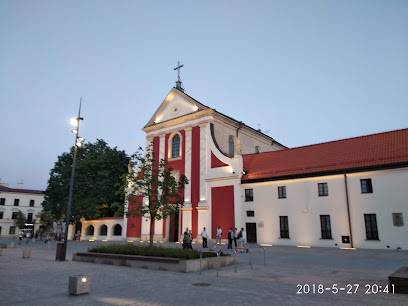
plac Po Farze
Explore the historical beauty and vibrant atmosphere of Plac Po Farze, a must-visit tourist attraction in Lublin, Poland.
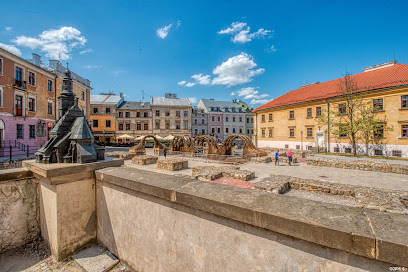
IBB Grand Hotel Lublin
Discover luxury and comfort at IBB Grand Hotel Lublin, where elegance meets the vibrant culture of Poland's historic city.
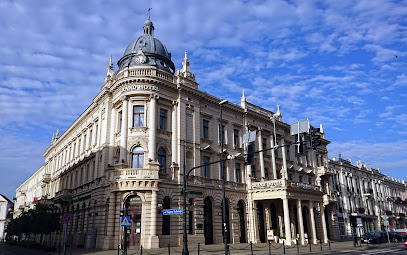
Unmissable attractions to see
Saxon Garden
Explore the enchanting Saxon Garden in Lublin, a peaceful state park perfect for nature lovers and cultural enthusiasts alike.
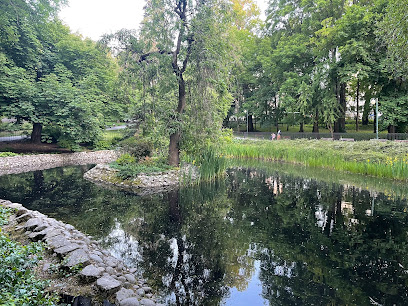
Lublin Village Open Air Museum
Explore the rich heritage of rural Poland at the Lublin Village Open Air Museum, a unique blend of history, culture, and traditional crafts.
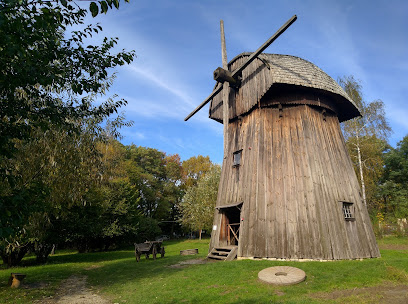
Lubelska Trasa Podziemna
Explore the fascinating Lubelska Trasa Podziemna, where the rich history of Lublin unfolds in a captivating underground adventure filled with stories and artifacts.
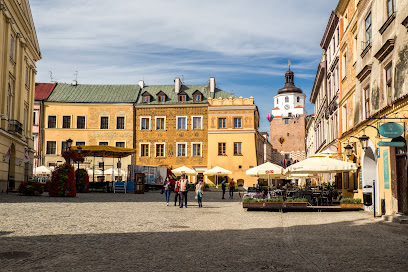
Lublin Castle Fields
Discover Lublin Castle Fields, a picturesque park blending history and nature in the heart of Lublin, Poland, perfect for relaxation and cultural experiences.
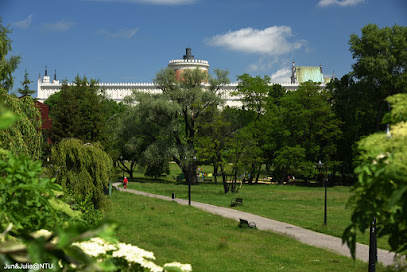
The Donjon
Explore the grandeur of The Donjon in Lublin, a medieval fortress rich with history and breathtaking views.
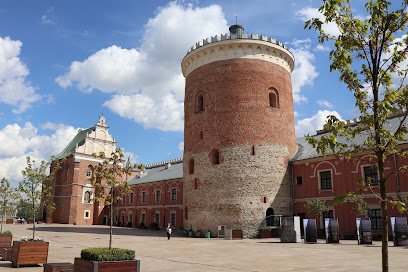
Portal
Experience the rich culture and history at the Portal in Lublin, a vibrant tourist attraction that immerses you in Poland's heritage.
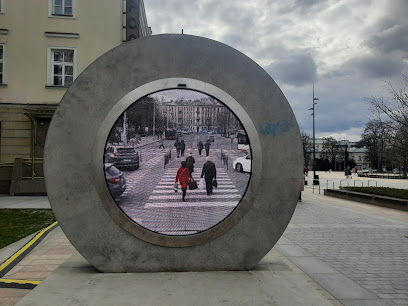
Siedlisko Jabłonna
Explore Siedlisko Jabłonna - a natural haven in Poland with breathtaking landscapes, vibrant culture, and endless outdoor activities for every traveler.
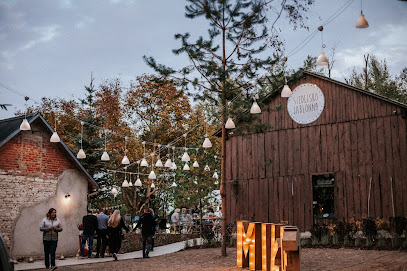
Gothic Tower
Explore the Gothic Tower in Lublin, a stunning medieval landmark that offers breathtaking views and a rich historical journey through the city's past.
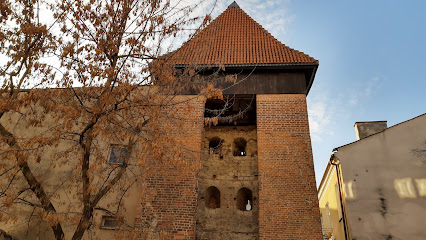
Zalew Zemborzycki
Explore the natural beauty and tranquility of Zalew Zemborzycki, a serene lake near Lublin perfect for outdoor adventures and relaxation.
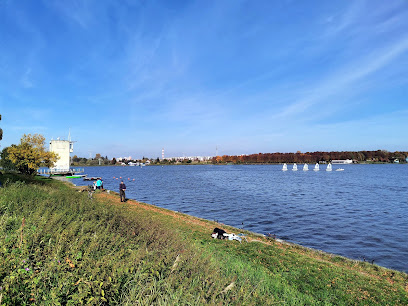
Zaułek Władysława Panasa
Discover the enchanting Zaułek Władysława Panasa in Lublin, a hidden gem filled with culture, history, and vibrant local life.
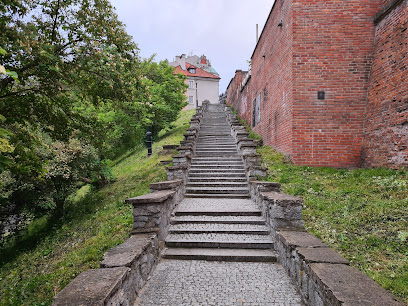
Ciuchcia w Zemborzycach
Discover the magical world of vintage trains at Ciuchcia w Zemborzycach, a family-friendly attraction near Lublin offering hands-on experiences and rich history.
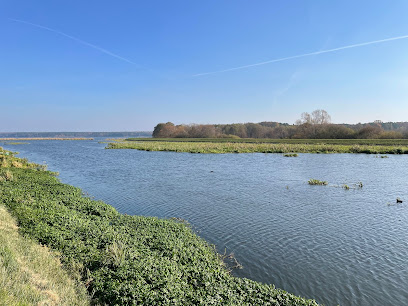
Mokradła
Discover the serene beauty of Mokradła, a picturesque tourist attraction along the Nędznica River in Lublin, perfect for nature lovers and tranquility seekers.
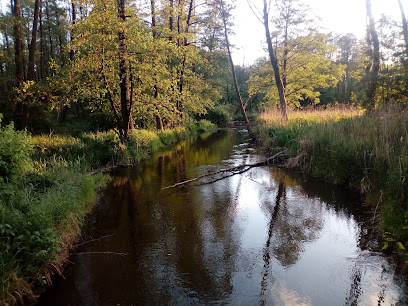
Stara pompa
Discover Stara Pompa, a historic attraction in Lublin, Poland, showcasing the city's rich culture and unique architectural heritage.
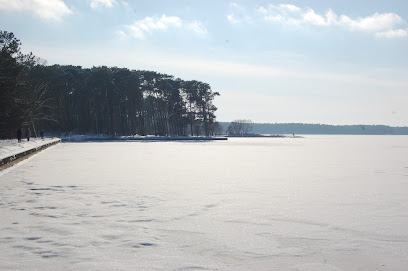
Zatoka Łabędzi
Explore the picturesque Zatoka Łabędzi in Lublin, a perfect blend of nature, adventure, and cultural experiences.
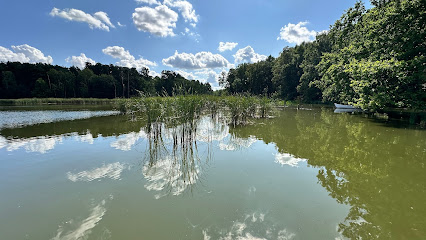
Kacze doły
Explore the serene beauty of Kacze Doły, a tranquil tourist attraction in Poland offering picturesque landscapes and a peaceful retreat in nature.
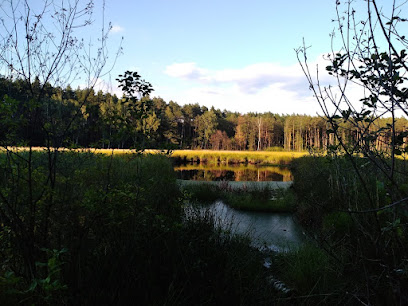
Essential places to dine
Św. Michał - pub regionalny
Experience authentic Polish cuisine and craft brews at Św. Michał Brewpub in Lublin - where tradition meets flavor!
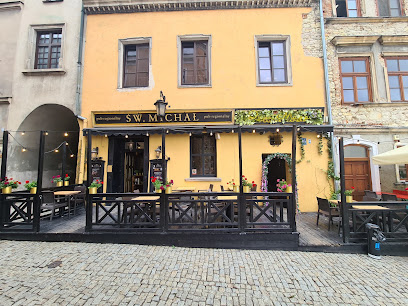
Stół i Wół
Experience the best of Polish cuisine at Stół i Wół in Lublin – where tradition meets modern culinary excellence.
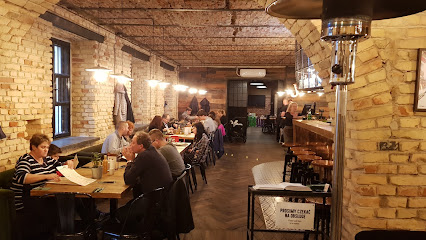
Koper Włoski u Braci Mazur
Savor authentic Italian cuisine at Koper Włoski u Braci Mazur in Lublin - where local flavors meet culinary excellence.
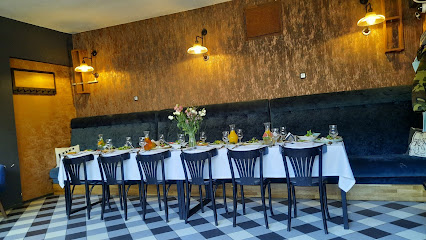
Red Rock City
Experience the best American hamburgers at Red Rock City in Lublin – where taste meets vibrant atmosphere!
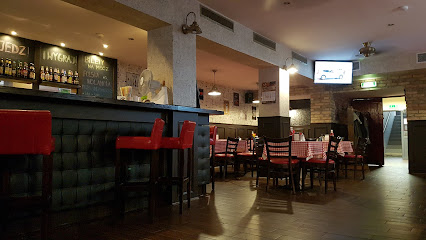
Pyzata Chata
Discover authentic Polish cuisine at Pyzata Chata in Lublin – where tradition meets flavor in every dish.
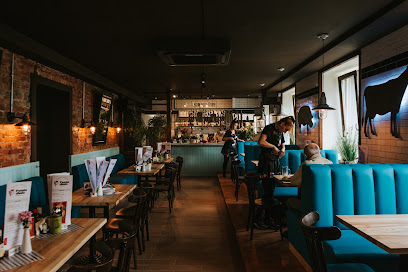
Mandragora żydowska restauracja
Experience authentic Jewish cuisine in Lublin at Mandragora – where tradition meets flavor.
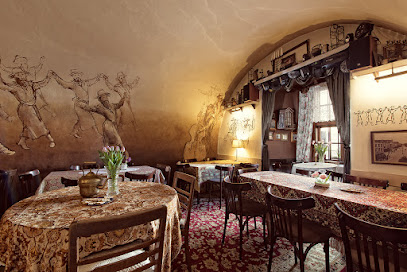
Sielsko Anielsko
Experience authentic Polish cuisine at Sielsko Anielsko in Lublin – where tradition meets taste in a cozy atmosphere.
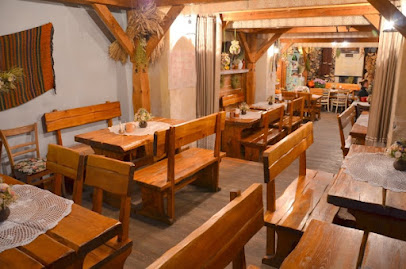
Perłowa Pijalnia Piwa
Discover Lublin's best-kept secret at Perłowa Pijalnia Piwa - where delightful food meets an energetic atmosphere.
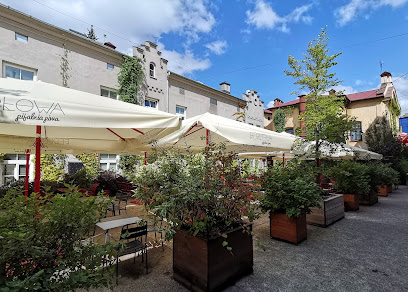
Chata Swojsko Strawa
Experience authentic Polish cuisine at Chata Swojsko Strawa in Lublin - where tradition meets taste.
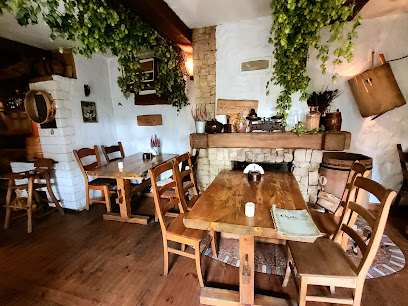
Dirty Joe Lublin
Discover Dirty Joe Lublin: A Brewpub Delight Serving Authentic Cheesesteaks & Southern Comfort Food in Poland's Historic City.
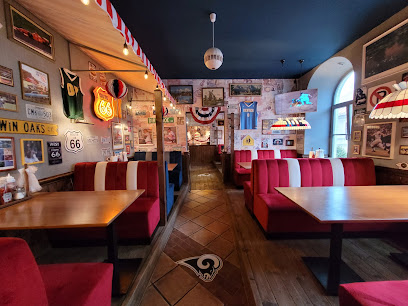
Pelier Bistro
Discover culinary excellence at Pelier Bistro in Lublin—where delicious food meets inviting ambiance.
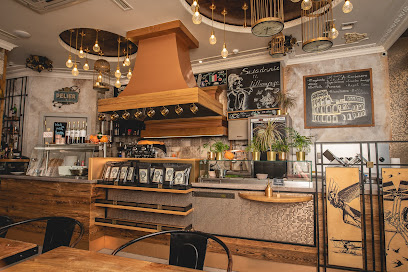
Restauracja Zielony Talerzyk Lublin
Experience authentic Polish flavors with vegetarian and vegan options at Restauracja Zielony Talerzyk in Lublin.
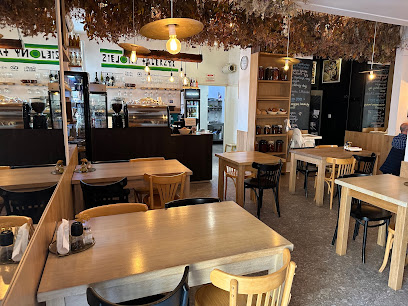
Restauracja Magia
Experience exquisite European cuisine at Restauracja Magia in Lublin, where tradition meets innovation in every dish.
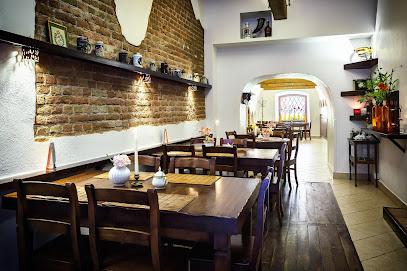
Może
Experience authentic Polish cuisine at Może in Lublin - where tradition meets flavor in a cozy atmosphere.
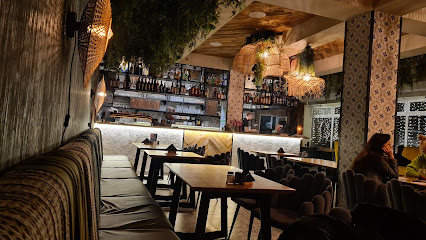
Thai Story
Experience authentic Thai cuisine at Thai Story in Lublin - where every dish tells a story.
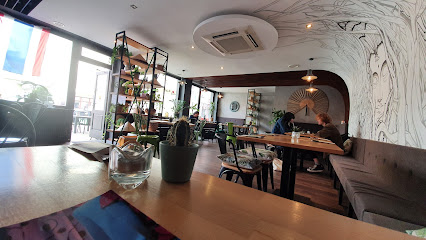
Markets, malls and hidden boutiques
Felicity Lublin
Discover Felicity Lublin: A premier shopping mall offering diverse brands, delicious eateries, and a vibrant atmosphere for all visitors.
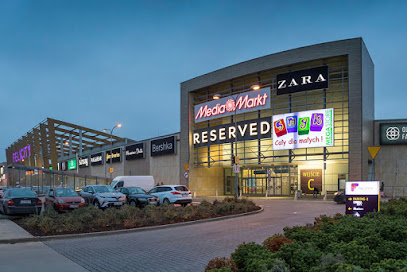
Galeria Olimp
Explore Galeria Olimp, Lublin's premier shopping destination featuring diverse stores, delightful dining, and endless entertainment options.
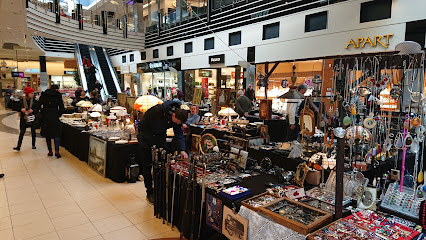
Lublin Plaza Shopping Center
Explore Lublin Plaza Shopping Center - your ultimate shopping and dining destination in the heart of Lublin, with diverse stores and delicious eateries.
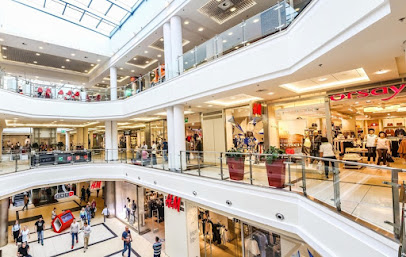
Cracow Gate
Explore the historic Cracow Gate in Lublin, a stunning medieval landmark showcasing rich heritage and breathtaking architecture.
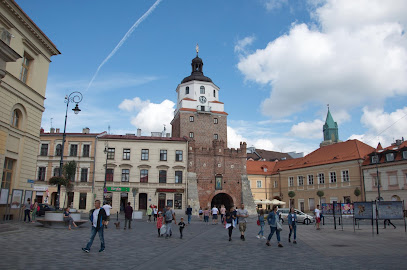
VIVO! Lublin
Discover shopping bliss at VIVO! Lublin, where fashion, food, and fun come together in one vibrant destination.
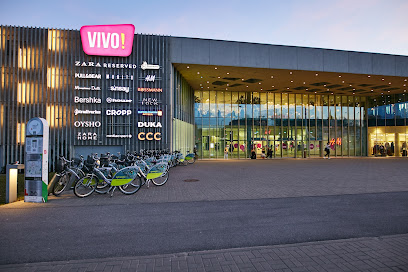
SKENDE Shopping
Explore Lublin's SKENDE Shopping, a premier shopping mall offering a delightful mix of retail, dining, and entertainment options for an enjoyable day out.
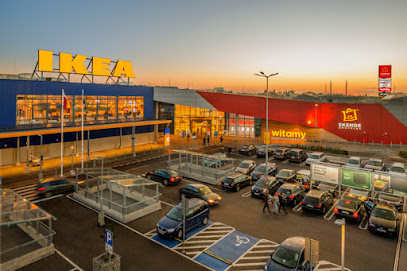
Galeria Orkana
Explore Galeria Orkana, Lublin's bustling shopping mall featuring diverse stores, dining options, and entertainment for a complete day out.
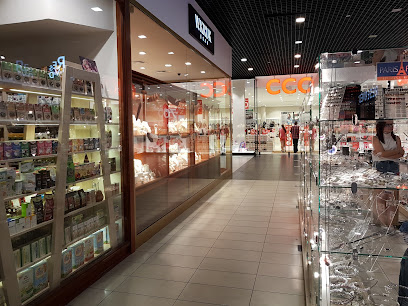
Let Me Out
Experience the thrill of adventure at Let Me Out, Lublin's top escape room center, where puzzles and stories collide for an unforgettable journey.
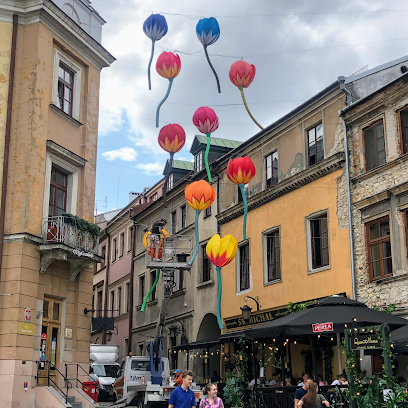
Diamentowa Park
Explore Diamentowa Park in Lublin, a vibrant shopping mall with diverse shops, delightful dining, and a welcoming atmosphere for all visitors.
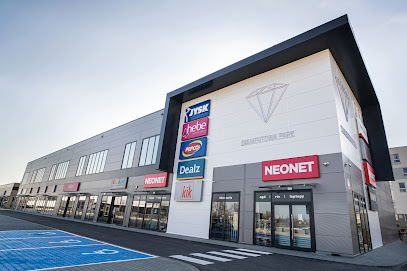
Groszek Market
Discover the flavors of Poland at Groszek Market, a vibrant grocery store in Janów Lubelski, offering fresh local produce and authentic delicacies.
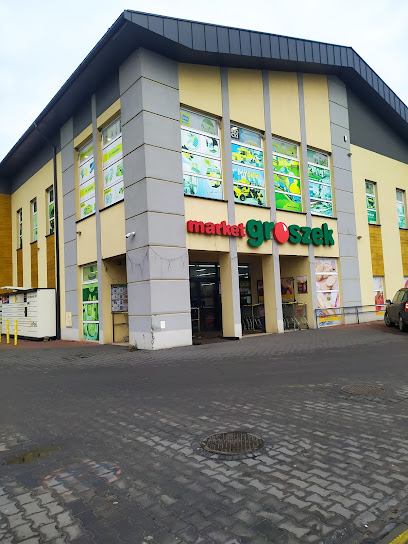
Delikatesy Centrum
Explore the flavors of Poland at Delikatesy Centrum, a premier grocery store in Janów Lubelski, offering local and international delicacies.
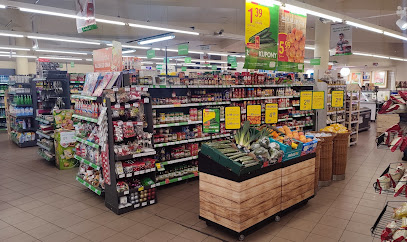
Centrum Delikatesy
Experience the authentic flavors of Poland at Centrum Delikatesy, a charming grocery store and deli in Żółkiewka-Osada.
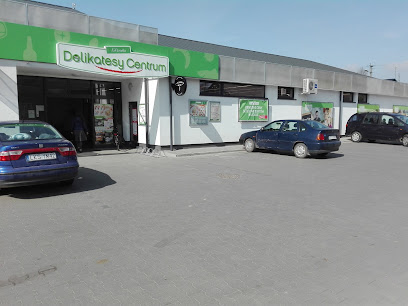
Stokrotka
Explore authentic Polish flavors at Stokrotka in Krzczonów, where local products meet friendly service for an unforgettable shopping experience.
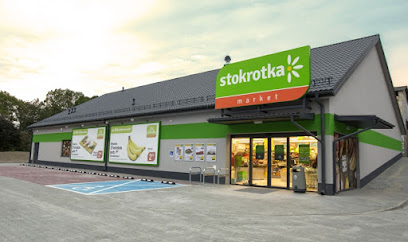
Telstore
Discover Telstore in Lublin for the best in mobile phones, accessories, and expert repair services in a vibrant tech hub.
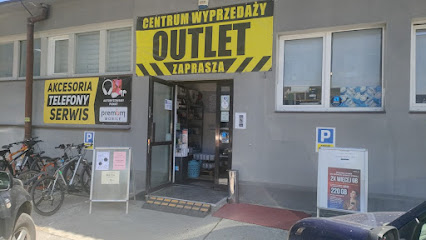
Delikatesy Premium
Discover Delikatesy Premium in Rudnik, where gourmet grocery shopping meets local culinary traditions and artisanal delights.
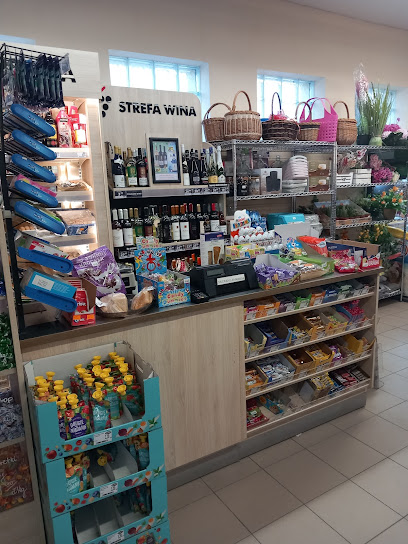
Essential bars & hidden hideouts
Św. Michał - pub regionalny
Discover the best of Polish brewing at Św. Michał, Lublin's premier brewpub offering a rich selection of craft beers and traditional cuisine.
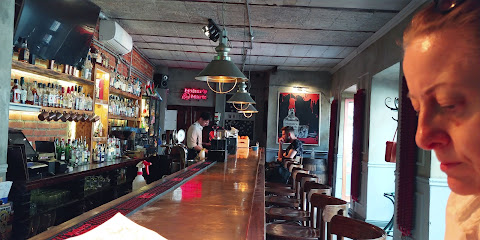
Stół i Wół
Discover Stół i Wół in Lublin for an unforgettable dining experience featuring delicious steaks, gourmet burgers, and a vibrant bar atmosphere.
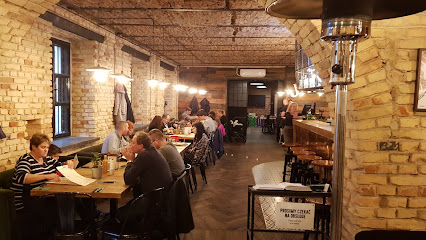
Ostro Klubokawiarnia
Experience the vibrant flavors of Lublin at Ostro Klubokawiarnia, where American, Mediterranean, and Polish cuisines meet in a lively lounge atmosphere.
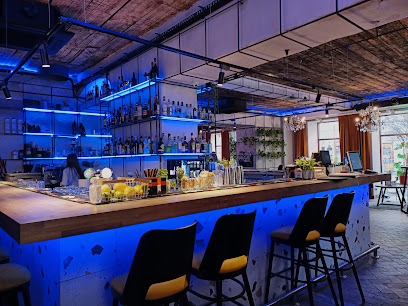
Perłowa Pijalnia Piwa
Discover Perłowa Pijalnia Piwa in Lublin, a lively beer garden and dance hall offering a vibrant atmosphere and an extensive beer selection for an unforgettable night out.
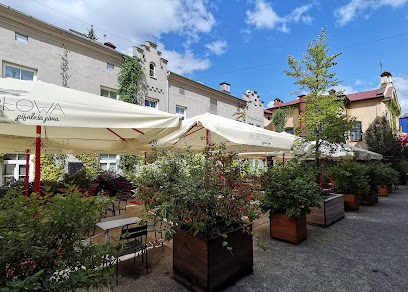
Pub u Szewca
Discover the lively atmosphere and diverse menu at Pub u Szewca in Lublin, a perfect spot for food and drink enthusiasts.
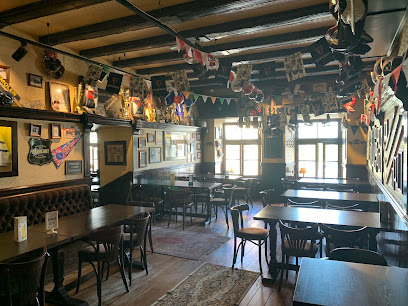
Czarna Owca Gastro Pub
Discover Czarna Owca Gastro Pub in Lublin – a blend of gourmet burgers, craft beers, and a cozy atmosphere for a memorable dining experience.
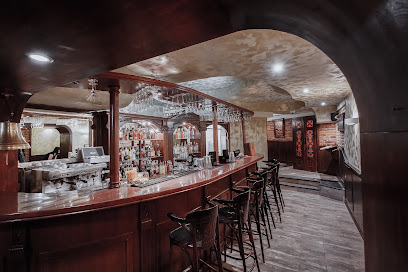
Shotbar U-Boot Lublin!
Discover the lively ambiance of Shotbar U-Boot Lublin, where karaoke meets a vibrant lounge atmosphere for an unforgettable night out.
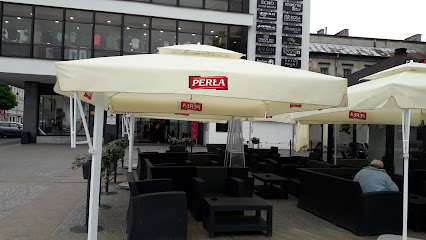
Nocny Portier - Cocktail Bar
Discover Lublin's vibrant nightlife at Nocny Portier, where exquisite cocktails and a chic atmosphere blend seamlessly.
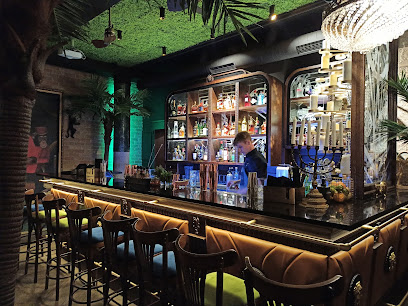
Padbar
Discover Padbar, Lublin's vibrant bar renowned for its creative cocktails, lively atmosphere, and delicious snacks, perfect for an unforgettable night out.
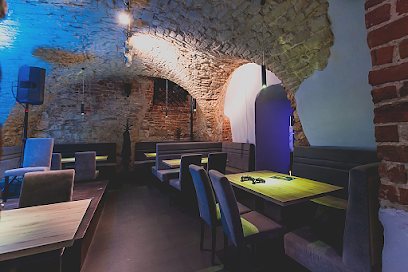
Perla Sports Pub
Experience the thrill of sports at Perla Sports Pub in Lublin, where great food and drinks meet an electric atmosphere.
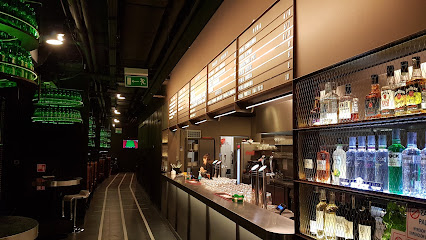
Tawerna La Traviata
Experience authentic Polish grill cuisine at Tawerna La Traviata in Lublin, where local flavors meet warm hospitality in a cozy setting.
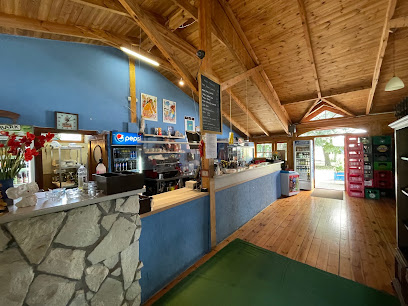
Club 30 Lublin
Dive into the electrifying nightlife of Lublin at Club 30, where music, dance, and cocktails create an unforgettable experience.
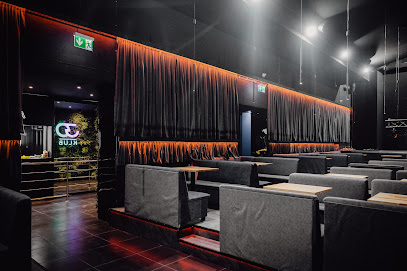
Pijana Wiśnia
Experience the lively spirit of Lublin at Pijana Wiśnia, a bar where local flavors and vibrant nightlife come together for an unforgettable evening.
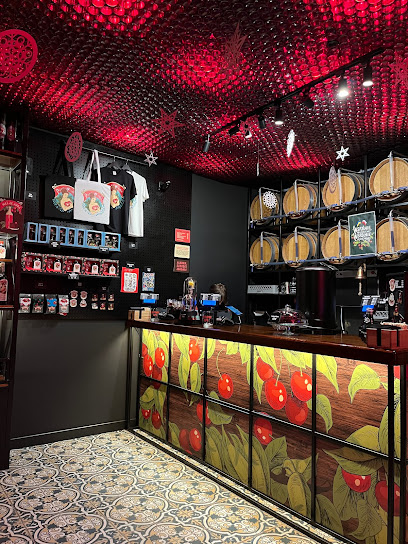
Szyk Szaszłyk
Experience the vibrant flavors of Lublin at Szyk Szaszłyk, a bar renowned for its delicious grilled skewers and lively atmosphere.
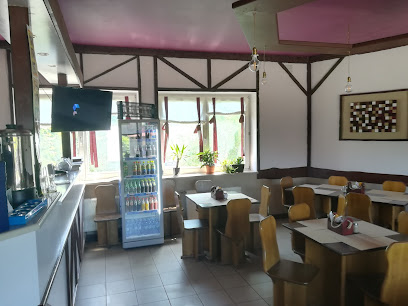
Local Phrases about Lublin Upland
-
- HelloCześć
[tʂɛɕtɕ] - GoodbyeDo widzenia
[dɔ vidzɛɲa] - YesTak
[tak] - NoNie
[ɲɛ] - Please/You're welcomeProszę
[prɔʂɛ] - Thank youDziękuję
[dʑɛŋku.jɛ] - Excuse me/SorryPrzepraszam
[pʂɛpra.ʂam] - How are you?Jak się masz?
[jak ɕɛ maʂ] - Fine. And you?Dobrze. A ty?
[dɔbʐɛ a tɨ] - Do you speak English?Czy mówisz po angielsku?
[tʂɨ muviʂ pɔ aŋʲɛlsku] - I don't understandNie rozumiem
[ɲɛ rɔzu.mjɛm]
- HelloCześć
-
- I'd like to see the menu, pleaseChciałbym zobaczyć menu, proszę
[xʨaw.bɨm zɔ.ba.ʨɨʨ mɛnu, prɔ.ʂɛ] - I don't eat meatNie jem mięsa
[ɲɛ jɛm mjɛ̃.sa] - Cheers!Na zdrowie!
[na zdrɔ.vʲɛ] - I would like to pay, pleaseChciałbym zapłacić, proszę
[xʨaw.bɨm za.pla.ʨitɕ, prɔ.ʂɛ]
- I'd like to see the menu, pleaseChciałbym zobaczyć menu, proszę
-
- Help!Pomocy!
[pɔ.mɔ.t͡sɨ] - Go away!Idź sobie!
[it͡ɕ sɔ.bʲɛ] - Call the Police!Zadzwoń po policję!
[za.dzvɔɲ pɔ pɔ.li.tsjɛ] - Call a doctor!Zadzwoń po lekarza!
[za.dzvɔɲ pɔ lɛ.ka.ʐa] - I'm lostZgubiłem się
[zɡu.bʲɛ.wɛm ɕɛ] - I'm illJestem chory
[jɛ.stɛm xɔ.rɨ]
- Help!Pomocy!
-
- I'd like to buy...Chciałbym kupić...
[xʨaw.bɨm ku.pjitɕ] - I'm just lookingTylko się rozglądam
[tʂɨkɔ ɕɛ rɔz.ɡwɔ̃.dam] - How much is it?Ile to kosztuje?
[i.lɛ tɔ kɔʂ.tu.jɛ] - That's too expensiveTo za drogo
[tɔ za drɔ.ɡɔ] - Can you lower the price?Czy możesz obniżyć cenę?
[tʂɨ mu.ʐɛʂ ɔb.nʲi.ʐɨʨ t͡sɛ.nɛ]
- I'd like to buy...Chciałbym kupić...
-
- What time is it?Która jest godzina?
[ktu.ra jɛst ɡɔ.d͡ʑi.na] - It's one o'clockJest pierwsza
[jɛst pjɛr.vʲɛʂa] - Half past (10)Pół do dziesiątej
[pul dɔ d͡ʑɛ.ɕɔ̃.tɛj] - MorningRano
[ra.nɔ] - AfternoonPopołudnie
[pɔ.pɔ.wud.ɲɛ] - EveningWieczór
[vjɛ.t͡ʂur] - YesterdayWczoraj
[f.ʈ͡ʂɔ.rɛj] - TodayDziś
[dʑiɕ] - TomorrowJutro
[ju.trɔ] - 1Jeden
[jɛ.dɛn] - 2Dwa
[dva] - 3Trzy
[tʂɨ] - 4Cztery
[ʈ͡ʂtɛ.rɨ] - 5Pięć
[pʲɛɲt͡ɕ] - 6Sześć
[ʂɛɕt͡ɕ] - 7Siedem
[ɕʲɛ.dɛm] - 8Osiem
[ɔ.ɕɛm] - 9Dziewięć
[d͡ʑɛ.vʲɛɲt͡ɕ] - 10Dziesięć
[d͡ʑɛ.ɕɛɲt͡ɕ]
- What time is it?Która jest godzina?
-
- Where's a/the...?Gdzie jest...
[ɡd͡ʑɛ jɛst] - What's the address?Jaki jest adres?
[jakʲ jɛst a.drɛs] - Can you show me (on the map)?Czy możesz mi pokazać (na mapie)?
[tʂɨ mu.ʐɛʂ mi pɔ.ka.zat͡ɕ na ma.pʲɛ] - When's the next (bus)?Kiedy jest następny (autobus)?
[kjɛ.dɨ jɛst na.stɛp.nɨ aw.tɔ.bus] - A ticket (to ....)Bilet (do ...)
[bi.lɛt dɔ]
- Where's a/the...?Gdzie jest...
History of Lublin Upland
-
The Lublin Upland has been inhabited since prehistoric times, with archaeological evidence suggesting that early human settlements date back to the Paleolithic era. Numerous flint tools, pottery fragments, and other artifacts have been unearthed, indicating a rich and continuous human presence in the region.
-
During the early medieval period, the Lublin Upland became part of the developing Polish state under the Piast dynasty. The region was strategically important due to its fertile lands and trade routes. Lublin, the region's main city, received its town rights in 1317, further cementing its importance in the medieval period.
-
One of the most significant historical events associated with the Lublin Upland is the Union of Lublin, signed on July 1, 1569. This act united the Kingdom of Poland and the Grand Duchy of Lithuania into a single state known as the Polish-Lithuanian Commonwealth. The union was a pivotal moment in European history and significantly influenced the political landscape of the region.
-
The Lublin Upland experienced a cultural and economic renaissance during the 16th century. The city of Lublin became a major center of trade, crafts, and learning. This period saw the construction of many significant buildings, including the Lublin Castle and the Kraków Gate, which remain important historical landmarks today.
-
In the mid-17th century, the Lublin Upland was profoundly affected by the Khmelnytsky Uprising (1648–1657), a Cossack rebellion against Polish rule. The region faced numerous battles and incursions, leading to significant destruction and depopulation. This period marked a challenging time for the inhabitants of the Lublin Upland.
-
The late 18th century saw the Lublin Upland, along with the rest of Poland, being partitioned by neighboring powers: Russia, Prussia, and Austria. The region experienced various administrative changes and was subjected to foreign rule, which significantly impacted its cultural and political landscape. The partitions lasted until Poland regained its independence in 1918.
-
During World War II, the Lublin Upland was occupied by Nazi Germany. The region witnessed significant resistance activities and tragic events, including the establishment of the Majdanek concentration camp. In 1944, the Lublin Operation, a major Soviet offensive, liberated the area from German occupation, marking a critical moment in the region's wartime history.
-
Following World War II, the Lublin Upland underwent extensive reconstruction. The region saw the development of new industries, infrastructure, and cultural institutions. Lublin, the regional capital, emerged as an important academic and cultural center, with the establishment of several universities and cultural organizations contributing to its modern identity.
-
Today, the Lublin Upland is renowned for its rich cultural heritage. The region hosts numerous festivals, such as the Jagiellonian Fair and the Lublin Jazz Festival, celebrating its diverse traditions. Historical sites, including castles, churches, and museums, attract visitors from around the world, making the Lublin Upland a vibrant destination that honors its past while embracing modernity.
Lublin Upland Essentials
-
Lublin Upland is located in the southeastern part of Poland. The nearest international airport is Lublin Airport, approximately 10 kilometers from the city center of Lublin. You can reach the region by train or bus from major Polish cities such as Warsaw, Kraków, and Gdańsk. The journey from Warsaw to Lublin by train typically takes around 2 hours. There are also several bus operators that provide regular services to Lublin Upland from various parts of Poland.
-
Within Lublin Upland, public transportation options include buses and trains, which connect the major towns and cities in the region. Lublin itself has an efficient network of buses and trolleybuses for getting around the city. Taxis and ride-sharing services are also available. For more flexibility, consider renting a car, especially if you plan to explore the rural areas and smaller villages. Biking is also a popular way to explore the region's scenic routes.
-
The official currency in Poland is the Polish Zloty (PLN). Credit and debit cards are widely accepted in most hotels, restaurants, and shops. However, it is advisable to carry some cash for smaller establishments, markets, and rural areas where card payments might not be accepted. ATMs are readily available throughout the region for cash withdrawals.
-
Lublin Upland is generally a safe destination for tourists. However, as with any travel destination, it is important to take standard precautions. Avoid walking alone at night in unfamiliar areas and be mindful of your belongings in crowded places. The region does not have specific high-crime areas targeting tourists, but it is always best to stay vigilant and aware of your surroundings.
-
In case of emergency, dial 112 for immediate assistance. This number connects you to emergency services including police, fire, and medical help. Lublin and other major towns in the region have hospitals and medical facilities. It is recommended to have travel insurance that covers medical emergencies. Pharmacies are available in the cities and towns for over-the-counter medications and minor health issues.
-
Fashion: Do dress comfortably and appropriately for the weather. When visiting religious sites, dress modestly and cover your shoulders and knees. Religion: Do respect local customs and traditions. Remove your hat and remain silent when visiting churches. Public Transport: Do validate your ticket before boarding buses and trains. Don't eat or drink on public transport. Greetings: Do greet people with a handshake and make eye contact. A smile is also appreciated. Eating & Drinking: Do try local delicacies and be open to traditional Polish hospitality. Don't refuse food or drink offerings, as it may be considered impolite.
-
To experience Lublin Upland like a local, visit the open-air markets where you can buy fresh produce and traditional Polish goods. Engage with locals, who are often friendly and willing to share stories about their culture and history. Don't miss visiting the historical sites such as Lublin Castle, Majdanek Concentration Camp, and the picturesque Kazimierz Dolny. For a unique experience, attend one of the local festivals or events, such as the Jagiellonian Fair or the Lublin Bread Festival.
Trending Landmarks in Lublin Upland
-
Lithuanian Square
-
Multimedia Fountain
-
Saxon Garden
-
Cracow Gate
-
Św. Michał - pub regionalny
-
Rezerwat przyrody Nad Tanwią
-
Stół i Wół
-
Państwowe Muzeum na Majdanku
-
Koper Włoski u Braci Mazur
-
Roztocze National Park
-
Mandragora żydowska restauracja
-
Sielsko Anielsko
-
ParZona
-
plac Po Farze
-
IBB Grand Hotel Lublin
Nearby Cities to Lublin Upland
-
Things To Do in Rzeszow
-
Things To Do in Radom
-
Things To Do in Kielce
-
Things To Do in Lviv
-
Things To Do in Tarnow
-
Things To Do in Lutsk
-
Things To Do in Warsaw
-
Things To Do in Krakow
-
Things To Do in Prešov
-
Things To Do in Lodz
-
Things To Do in Uzhhorod
-
Things To Do in Czestochowa
-
Things To Do in Ternopil
-
Things To Do in Košice
-
Things To Do in Bialystok













